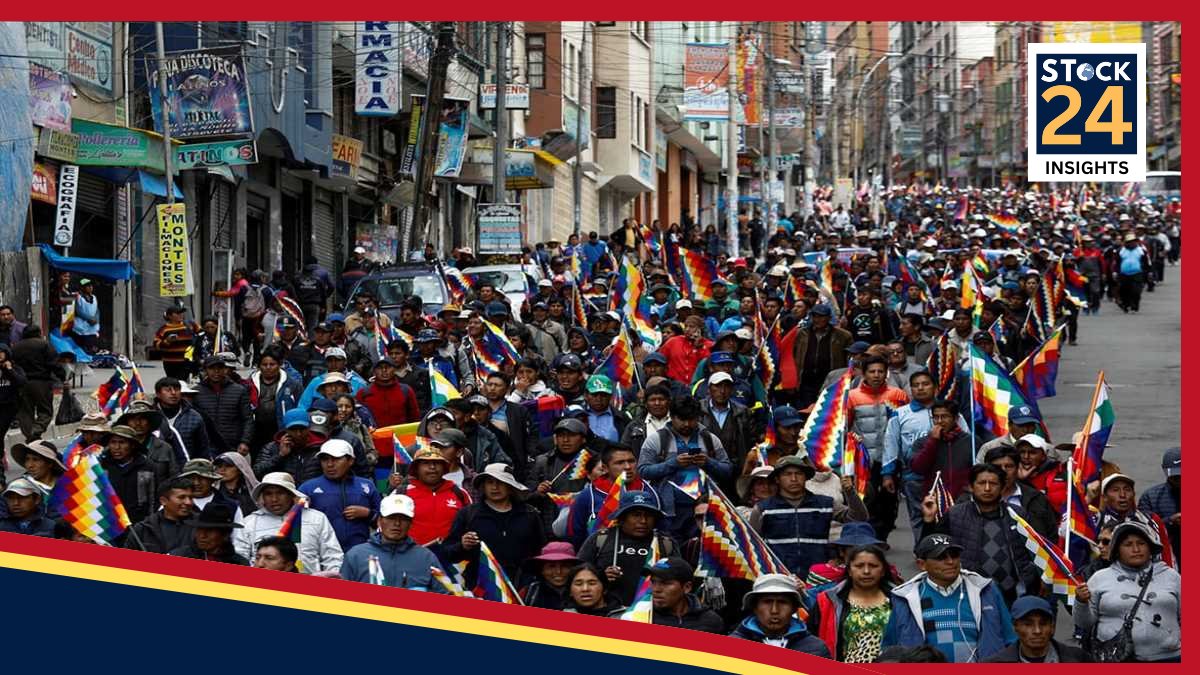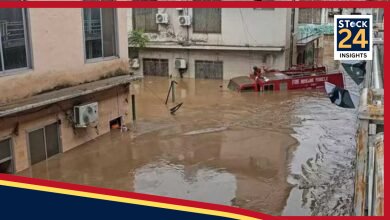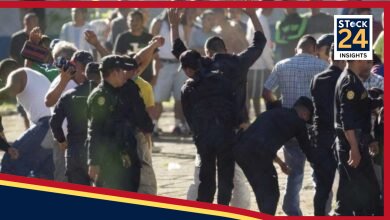Bolivia at a Crossroads: Voters Poised to End 20-Year Socialist Rule Amid Economic Crisis
In a pivotal election, Bolivians are heading to the polls in a vote that could fundamentally reshape the nation's political landscape, potentially ousting the leftist Movimiento al Socialismo (Mas) party after nearly two decades of dominance and ushering in a new right-leaning government.

Bolivia is voting in a high-stakes presidential election that marks a potential turning point for the Andean nation. After 19 years in power, the socialist Mas party, which first rose to prominence with the election of Evo Morales in 2005, is facing an existential threat. Crippled by the country’s worst economic crisis in four decades and fractured by internal power struggles, the party is not just at risk of losing the presidency—it could lose its legal status altogether if it fails to secure a minimum of 3% of the vote.
The election is being driven by widespread public discontent over severe shortages of fuel and dollars, soaring inflation, and a general sense of economic collapse. This has created a fertile ground for the opposition, with two right-leaning candidates leading a tight race to replace the deeply unpopular incumbent government.
Key Takeaways from the Bolivian Election:
-
End of an Era: The ruling leftist Mas party, in power for nearly 20 years, is deeply unpopular and risks being voted out. It faces legal dissolution if it falls below a 3% electoral threshold.
-
Economic Crisis is a Central Issue: The election is dominated by what analysts call the worst economic crisis since the 1985 hyperinflation, fueling voter anger and a desire for change.
-
Right-Wing Frontrunners: Two opposition candidates are virtually tied for the lead: centre-right business tycoon Samuel Doria Medina and right-wing former president Jorge “Tuto” Quiroga.
-
The Left in Disarray: The Mas party is fragmented. Current President Luis Arce is not running, his chosen successor is polling at just 2%, and former leader Evo Morales is actively trying to sabotage the vote from the sidelines.
-
Potential for a Runoff: If no candidate wins outright, an unprecedented second round will be held in October, signaling a deeply divided electorate.
The Collapse of a Political Dynasty
The decline of the Mas party has been swift and dramatic. President Luis Arce, a former finance minister under Morales, has seen his popularity plummet amid the economic turmoil. Choosing not to seek re-election, he nominated his 36-year-old minister, Eduardo del Castillo, who has failed to gain any significant traction with voters.
Adding to the chaos is the disruptive presence of the party’s founder, Evo Morales. Bolivia’s first Indigenous president, now 65, is the target of an arrest warrant and was barred by the courts from running again. In response, Morales has urged his supporters to cast “null votes,” claiming that if spoiled ballots outnumber the leading candidate’s total, it would somehow validate his political victory.
However, analysts are skeptical of his influence. “Before Morales’s call, null votes were about 10%; now they’re 12%,” noted political analyst Carlos Toranzo. “Even if it rises, I doubt it will go much higher.”
A Fractured Left Paves the Way for the Right
The internal implosion of the left has extended beyond the Arce-Morales feud. Andrónico Rodríguez, a 36-year-old senator once seen as Morales’s natural heir, has launched his own presidential bid with a different left-wing coalition. This move earned him the label of “traitor” from Morales but has garnered support from key Indigenous groups.
Enrique Mamani, leader of the influential Aymara organization Ponchos Rojos, threw his support behind Rodríguez, calling Morales the real traitor. “Those calling for null votes are a handful of traitors to the struggle of our grandparents, who shed their blood and gave their lives so that one day we could have this right to vote,” Mamani stated powerfully.
This fragmentation has left the path clear for the opposition. The race is currently led by centre-right businessman Samuel Doria Medina and conservative former president Jorge “Tuto” Quiroga, with polls showing them in a statistical dead heat.
An Uncertain Future and a Difficult Transition
With approximately 7.9 million Bolivians eligible to vote, the central question is whether any candidate can secure an outright victory. To avoid a runoff, a candidate needs over 50% of the vote, or at least 40% with a 10-point lead over the runner-up. If not, a second round—which would be unprecedented in the country’s modern history—is scheduled for October 19.
For analyst Carlos Toranzo, one outcome is certain: the Mas party’s long reign is over. However, he warns the transition will not be easy. “It will be difficult for them to hand it over, because they have held it for 20 years with near-absolute control of parliament, the judiciary and the electoral authority,” he said.
In an interview with The Guardian, outgoing President Luis Arce acknowledged his government’s unpopularity but placed much of the blame on his former mentor, Morales, whose allies in parliament allegedly “sabotaged and boycotted all our laws.”
Despite the bleak outlook, Arce insisted he would respect the election results and offered a defiant prediction for his party’s legacy. Quoting Fidel Castro, he said, “‘History will absolve us’ because in the long run the people will understand everything we had to endure… I’m sure the population will miss us afterwards.”

